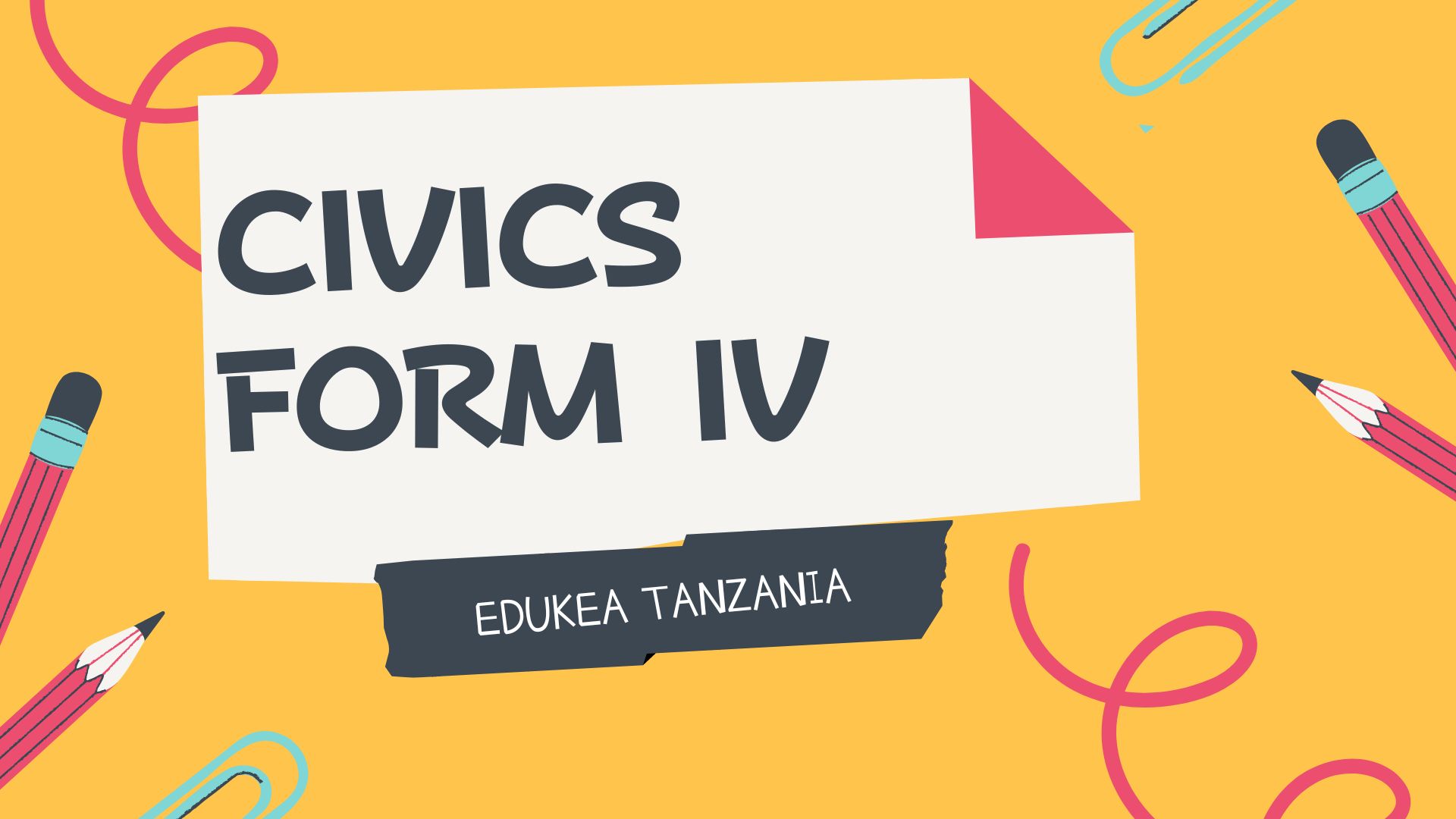The outcomes of studying Civics in Form Four include:
-
Civic Knowledge: Students develop a comprehensive understanding of civic concepts, including governance structures, democratic principles, rights, and responsibilities. They gain knowledge about how government systems function and their roles as citizens within these systems.
-
Critical Thinking Skills: Students enhance their critical thinking skills by analyzing and evaluating civic issues, policies, and practices. They learn to assess information critically, identify biases, and consider multiple perspectives when forming opinions and making decisions.
-
Civic Engagement: Students become actively engaged in civic life, participating in activities such as voting, community service, and advocacy for social justice. They understand the importance of civic participation in shaping policies and promoting positive change in society.
-
Ethical Awareness: Students develop ethical awareness and a sense of social responsibility, understanding the importance of upholding ethical principles such as fairness, justice, and respect for diversity in civic engagement.
-
Effective Communication: Students enhance their communication skills by articulating their ideas, opinions, and arguments effectively, both orally and in writing. They learn to express themselves clearly, confidently, and persuasively when discussing civic issues and engaging in debates.
-
Global Citizenship: Students develop an awareness of global issues and their interconnectedness with local and national issues. They understand their roles and responsibilities as global citizens and the importance of addressing global challenges such as human rights abuses, poverty, and environmental degradation.
-
Empowerment: Through their study of Civics, students feel empowered to participate actively in democratic processes and advocate for positive change in their communities and beyond. They recognize their potential to make a difference and take action to address societal issues.
-
Preparation for Citizenship: Students are prepared to fulfill their roles and responsibilities as informed and engaged citizens in a democratic society. They understand the importance of active citizenship in upholding democratic values, promoting social justice, and building inclusive communities.
Overall, studying Civics in Form Four equips students with the knowledge, skills, and values necessary to be informed, engaged, and responsible citizens who contribute positively to society and work towards a more just and equitable world.
The requirements for studying Civics in Form Four include:
-
Basic Understanding of Civic Concepts: Students should have a foundational understanding of basic civic concepts such as democracy, citizenship, rights, and responsibilities. This includes understanding the structure and functions of government.
-
Language Proficiency: Students should have a proficient level of language skills, as Civics lessons often involve reading and comprehending complex texts, discussing ideas, and writing essays or reports.
-
Critical Thinking Skills: Students need to develop critical thinking skills to analyze and evaluate civic issues, policies, and practices. They should be able to identify biases, assess evidence, and consider multiple perspectives.
-
Research Skills: Students should have basic research skills to gather information from various sources, such as textbooks, articles, and government documents, to support their understanding of civic topics.
-
Ethical Awareness: Students should have an awareness of ethical principles and values, such as fairness, justice, and respect for diversity, which are integral to civic engagement and responsible citizenship.
-
Interest and Engagement: Students should be interested in civic issues and motivated to engage in discussions and activities related to governance, democracy, and social justice. Active participation is essential for meaningful learning.
-
Access to Resources: Students should have access to resources such as textbooks, reference materials, and digital resources that support their learning of Civics. Access to relevant and up-to-date information is crucial for a comprehensive understanding of civic issues.
-
Classroom Environment: A supportive and inclusive classroom environment, facilitated by a knowledgeable and engaging teacher, is essential for fostering discussions, debates, and critical reflections on civic topics.
By meeting these requirements and actively engaging in Civics studies, students can develop a deeper understanding of citizenship, governance, and civic responsibility, preparing them to participate effectively in democratic society and contribute positively to their communities.
